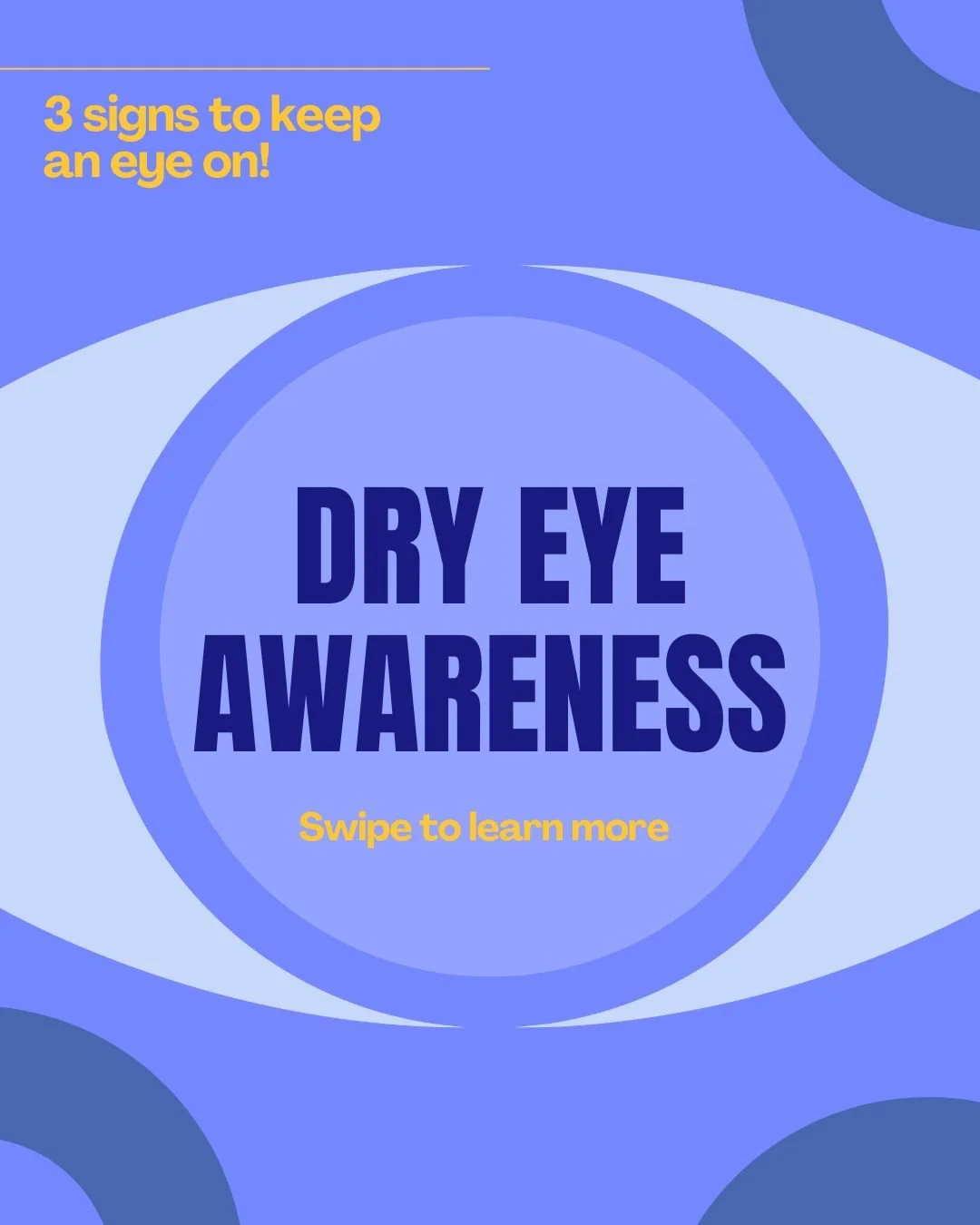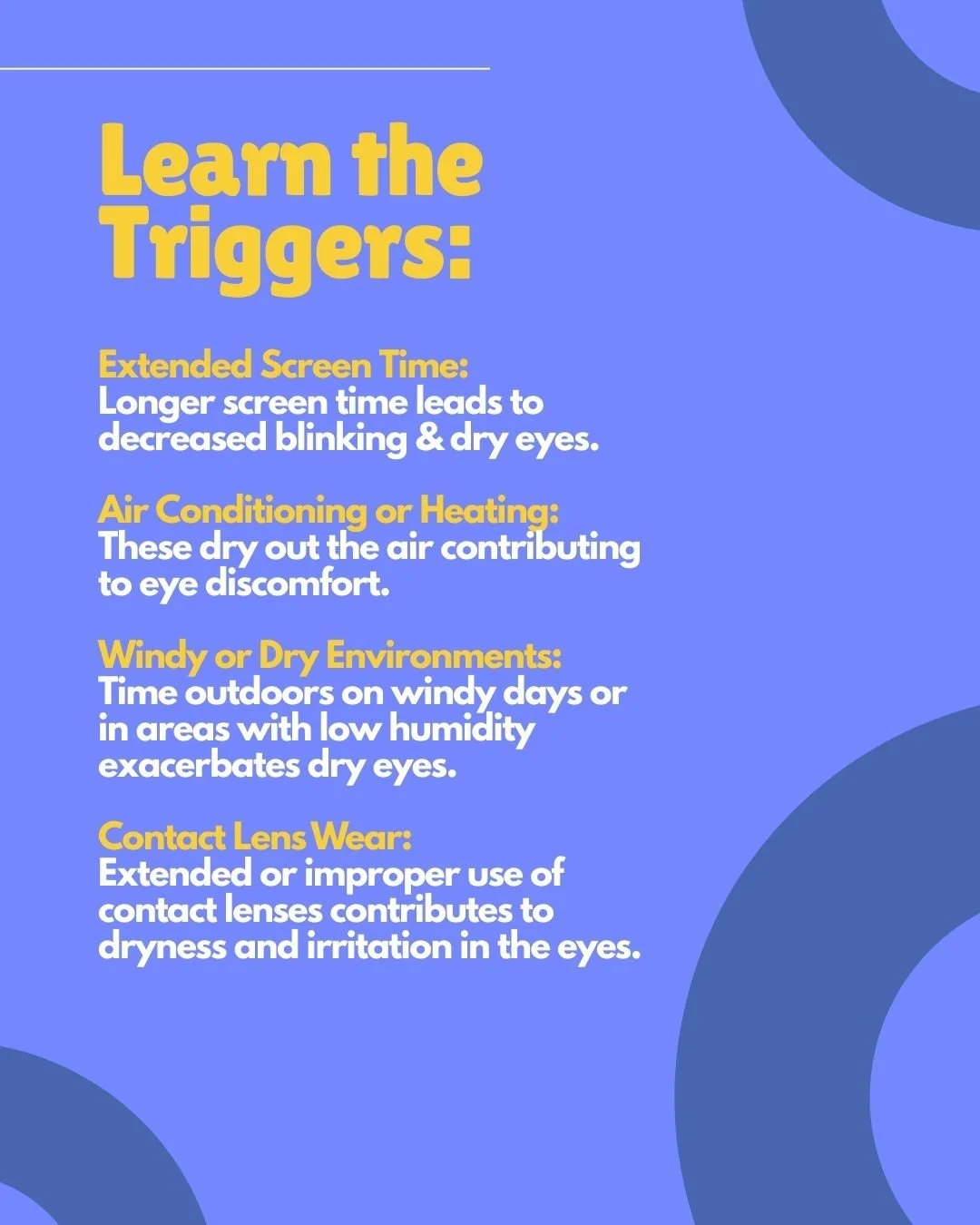Why are my eyes dry?
Is Your Vision Feeling Dry or Irritated?
Here’s What You Need to Know
Do your eyes often feel itchy, watery, sore, or blurry? If so, you might be experiencing dry eyes, a condition that’s becoming increasingly common in Australia. Studies suggest that a large majority of Australians, over 85% have experienced some form of dry eye at some point in their lives. Certain times of year, like winter, can make symptoms worse due to cold, dry air, indoor heating, and smoke from wood fires.
What Happens in Dry Eye?
Your eyes rely on a protective tear film to stay healthy and comfortable. This thin layer of moisture keeps your eyes lubricated, nourished, and shielded from irritants. When the tear film is unstable or breaks down too quickly, it can lead to symptoms such as:
Scratchiness or burning
Excessive watering
Sensitivity to light
Blurred vision
Feeling of a foreign body in the eye
Who’s More Likely to Develop Dry Eye?
While dry eye can affect anyone, certain factors increase your risk:
Age and Gender: Dry eye becomes more common as we get older, particularly in women.
Lifestyle and Environment: Long hours on screens, exposure to pollution, dry indoor air, and a poor diet can contribute.
Eye Health Factors: Contact lens wearers and people who’ve had procedures like LASIK are more prone.
Health Conditions and Medications: Conditions such as diabetes, thyroid disease, rosacea, and connective tissue disorders can worsen dry eye. Some medications—including antihistamines, antidepressants, hormone therapies, isotretinoin (Roaccutane), and diuretics—can also reduce eye moisture.
These factors either limit tear production or increase evaporation, which concentrates salts on the eye’s surface, causing irritation and triggering inflammation—a cycle that can make dry eye symptoms persistent.
How is Dry Eye Managed?
Treatment focuses on addressing the root cause, not just temporary relief. Key approaches include:
Stimulating tear production to restore natural eye lubrication.
Using artificial tears or specialized drops to supplement the tear film.
Reducing inflammation to break the cycle of irritation.
Over-the-counter drops can ease discomfort in the short term, but they usually don’t solve the underlying problem. For lasting relief, it’s important to get a thorough assessment from an optometrist who can tailor a treatment plan to your specific needs.
If your eyes are constantly dry, itchy, or uncomfortable, don’t ignore the signs. Book an appointment with us today to protect your vision and restore comfort to your eyes.





